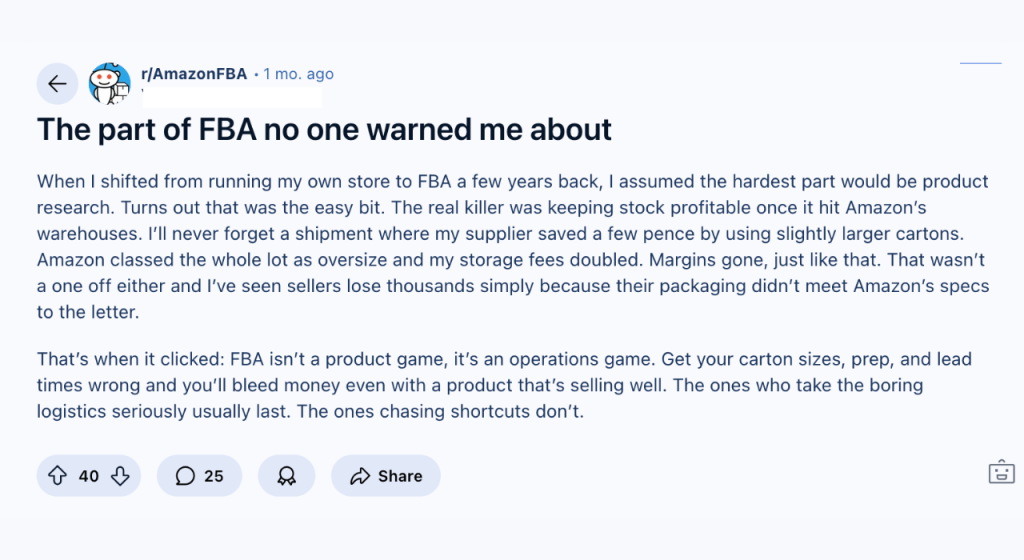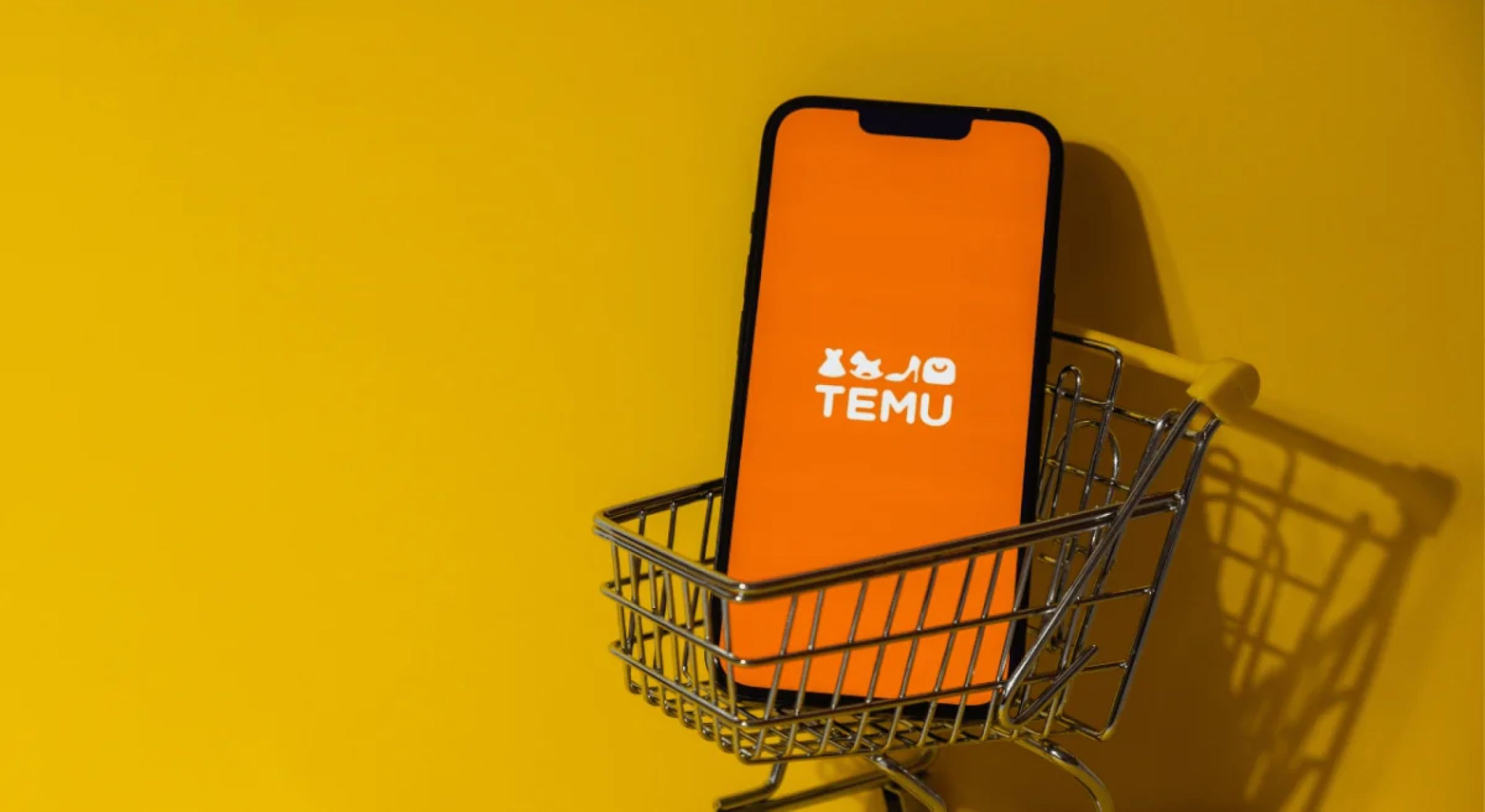Most sellers focus on research, rankings, and sales velocity.
But the lessons that stick hardest aren’t about shiny products, they’re about the hidden mechanics of FBA that decide whether you scale or sink.
- The 60-day shortcut to $100K Amazon listings 🚀
- Where FBA hides its profit killers 🕵️
- Thought of the Day 🍴
- Get Looped In and take the chaos out of ecommerce accounting ✉️
- Your quick weekly update on news and resources for Amazon sellers!

SELLER CONFESSIONS

An Amazon seller (OP) confessed: When they moved from running their own store to FBA a few years back, they assumed the hardest part would be product research.
Well, … it wasn’t. The real struggle began once inventory hit Amazon’s warehouses.
- Slightly larger cartons. OP’s supplier changed the box size without notice, thinking it was a minor adjustment.
- Reclassified as oversize. Amazon flagged the shipment as oversize, which automatically increased handling and storage costs.
- Storage fees doubled. The new classification drove up fees, quickly eating into profits.
- Margins erased. What seemed like a small packaging tweak ended up wiping out the shipment’s profitability.
And this wasn’t a fluke, OP said they’d seen other sellers lose thousands for the same reason: packaging that didn’t meet Amazon’s specs down to the letter.
📦 When cartons kill your margins
That moment reshaped OP’s view of the business. FBA wasn’t about flashy products, it was about operational discipline. Other sellers quickly agreed, pointing out that:
- Profit lives in the details. Oversize classification or sloppy prep can gut margins overnight.
- Warehouses aren’t storage. FBA expects inventory to move within 60–90 days; after that, fees pile up fast.
- Smart alternatives exist. Amazon Warehousing & Distribution (AWD) or 3PLs help cut costs and keep inventory flowing.
- Less is more. Restocking every 2–3 weeks is often cheaper than overstuffing Amazon’s warehouses.
As OP summed it up, FBA isn’t a product game, it’s an operations game.
💬 The seller verdict
The thread filled with hard-won wisdom:
- Even small packaging errors can snowball into massive financial hits.
- Checking Amazon’s size tables is non-negotiable, oversized items are often better sold via FBM.
- Pairing support tickets with forum posts sometimes gets Amazon staff to move faster.
- FBA pays off, but only if sellers treat it like a serious business, not a casual side hustle.
⏳ Longevity lies in logistics
The conclusion was clear: Amazon doesn’t reward shortcuts. The sellers who master carton specs, prep, fee tiers, and lead times are the ones who stay profitable. Everyone else quietly bleeds out.

THOUGHT OF THE DAY
In FBA, profits don’t disappear because of bad products, they disappear because of bad operations.

BITES OF THE WEEK
- Grocery Shop: Grocery and CPG’s global gathering for innovation and growth is in Vegas, September 28 – October 1, 2025.
- Franchise FTW: Learn how to improve franchise operations with Placer.ai at the Franchise Leadership & Development Conference.
- ChannelX World: Retailers, brands, and ecommerce professionals can explore cutting-edge strategies on October 8, 2025.
- Winning in Delivery: Register now for the Last Mile Delivery Conference and Expo this October 16 – 17, 2025.








